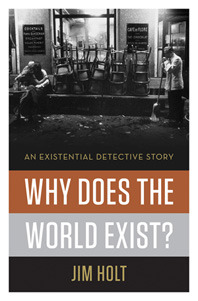More on this book
Community
Kindle Notes & Highlights
A still better answer was supplied by Sidney Morgenbesser, late Columbia University philosopher and legendary wag. “Professor Morgenbesser, why is there something rather than nothing?” a student asked him one day. To which Morgenbesser replied, “Oh, even if there was nothing, you still wouldn’t be satisfied!”
If you turn on your television and tune it between stations, about 10 percent of that black-and-white speckled static you see is caused by photons left over from the birth of the universe. What greater proof of the reality of the Big Bang—you can watch it on TV.
Nothing is popularly held to be better than a dry martini, but worse than sand in the bedsheets. A poor man has it, a rich man needs it, and if you eat it for a long time, it’ll kill you. On occasion, nothing could be further from the truth, but it is not clear how much further. It can be both black and white all over at the same time. Nothing is impossible for God, yet it is a cinch for the rankest incompetent. No matter what pair of contradictory properties you choose, nothing seems capable of embodying them. From this it might be concluded that nothing is mysterious. But that would only
...more
But simplicity is, for scientists, more than a guide to truth. It is also, as Weinberg has observed, “part of what we mean by an explanation.” It is simplicity that distinguishes a “beautiful explanatory theory” in physics from a “mere list of data.” Richard Dawkins made a similar point. Complicated realities, Dawkins submits, are more improbable than simple ones, and therefore stand in greater need of explanation. Take the existence of biological life. To posit a God as its cause is a nonstarter, Dawkins argues, since “any God capable of designing a universe, carefully and foresightfully
...more
Some thinkers object to the notion because it entails that an infinite series of tasks might have been completed before the present moment—which, they say, is impossible. But completing an infinite series of tasks is not impossible if you have an infinite amount of time in which to perform them all. In fact, it is mathematically possible to complete an infinite series of tasks in a finite amount of time, provided you perform them more and more quickly. Suppose you can accomplish the first task in an hour; then the second task takes you a half hour; the third takes you a quarter of an hour; the
...more


